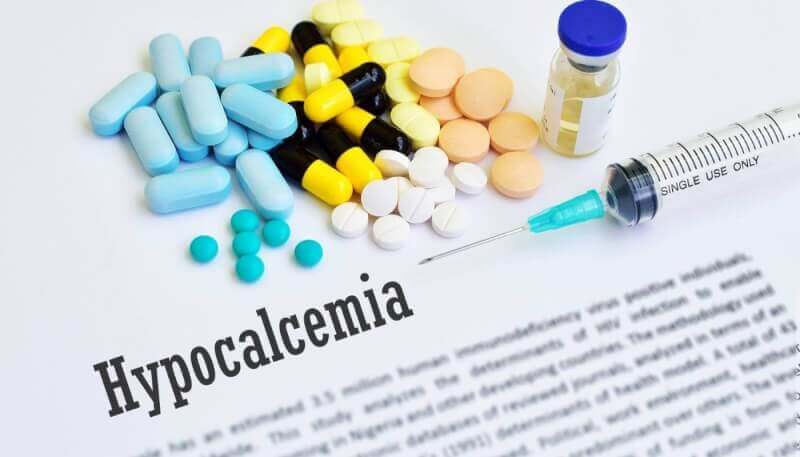What are Endocrinology and Metabolic Diseases?
Hormones play a primary role in the normal functioning of the body. The glands that make up the hormonal system, called the endocrine glands, include the parathyroid, hypothalamus, pituitary, thyroid, ovarian, pancreatic, adrenal and testicular glands. In addition, the endothelial cells lining the inner surface of the vessels are also part of the endocrine system. Endocrinology and metabolic diseases is the department responsible for the diagnosis and treatment of health conditions that occur when these hormones are secreted inadequately, not at all or in excess.
Since endocrinology and metabolic diseases are concerned with the entire hormone system, they deal with many different diseases ranging from vitamin and mineral deficiencies to sexual diseases, obesity and diabetes. They also diagnose and treat diseases of protein, carbohydrate and fat metabolism, which usually occur from birth.
What are the conditions related to Endocrinology and Metabolic Diseases?
Many different diseases are treated in the endocrinology and metabolic diseases unit. The most common reasons for applying to this department are as follows.
Obesity
Obesity is a condition in which the body has much more fat mass than it should have. Obesity is defined as a body mass index above thirty. Obesity, which is extremely common all over the world, can cause many different diseases. Although unhealthy and unbalanced diet and high calorie intake are the main causes of obesity, diseases of the thyroid gland, ovaries, adrenal glands and pituitary gland can also cause obesity. For this reason, obesity is one of the conditions related to endocrinology and metabolic diseases.
Hypertension
Hypertension, also called high blood pressure, is another disease that is extremely common in the society. Hypertension occurs for many different reasons, and hormonal disorders are among the causes. Diseases of the thyroid gland and adrenal glands in particular increase the risk of developing hypertension. Anti-hypertensive drugs can be used to lower blood pressure if the treatment of hypertension in endocrinology and metabolic diseases fails to achieve adequate results.
Insulin resistance
Insulin resistance is a condition in which cells are insensitive to the hormone insulin despite the presence of sufficient amounts of the hormone in the blood. This causes the glucose level in the blood to rise. An increase in glucose levels in the blood leads to an increase in insulin levels. In some cases, insulin resistance is a disease that can develop alone, while in other cases it is associated with other diseases. These include polycystic ovary syndrome and various metabolic syndromes. Insulin resistance is usually treated with medication. However, a separate treatment plan is needed to address secondary problems caused by prolonged high blood glucose levels.
Eating disorders
Eating disorders and deterioration of body perception are related to this. Eating disorders are divided into several different types. However, the common goal of each of them is the desire to lose weight. To this end, methods such as high-intensity exercise, starvation or malnutrition are adopted. Almost all patients with eating disorders have hormonal disorders. Therefore, a multidisciplinary approach should be adopted in the treatment of eating disorders. The endocrinology and metabolic diseases unit is also involved in the treatment process to treat hormonal disorders in patients.
Diabetes
Diabetes patients are one of the most frequently treated patient groups in the endocrinology and metabolic diseases unit. Diabetes, which occurs when the hormone insulin secreted by the pancreas is not produced in sufficient amounts or when the insulin produced is not perceived by the body cells, is among the endocrine diseases. It is divided into three as type-1, type-2 and gestational diabetes. Diabetes is treated with different treatment options ranging from insulin hormone injections to antidiabetic drugs. The aim of each treatment option is to maintain optimal blood glucose levels.
Thyroid gland diseases
The pituitary gland is one of the hormonal glands that are extremely important in body functioning. Thyroid hormones secreted by the thyroid glands in the neck region regulate the body's energy metabolism. There are many different diseases related to the thyroid gland. These include hypothyroidism, goiter, hyperthyroidism, thyroid cancers, thyroid nodules and thyroid inflammation. These diseases cause more or less thyroid hormone secretion. Although the first treatment option in thyroid gland diseases is medication, surgical treatment options are also considered in some cases.
Pituitary gland diseases
The complications caused by pituitary gland diseases, which play a very important role in the normal functions of the body, especially growth hormone, are very diverse. Especially in cases of pituitary insufficiency and tumor formation, people may develop acromegaly, growth retardation, Cushing's syndrome, dwarfism, early menopause, hyperprolactinemia and thyroid diseases. In the treatment of pituitary gland diseases, there are surgical operations as well as drug options. Not all pituitary gland diseases are among the curable diseases. For this reason, some treatments are designed to control the condition and prevent complications.
Adrenal gland diseases
The adrenal glands, also called adrenal glands, located above both kidneys, synthesize aldosterone, noradrenaline, cortisol, adrenaline and sex hormones. Benign or malignant tumors in the adrenal glands cause less or more secretion of these hormones. This leads to the development of various diseases. In the treatment of adrenal gland diseases, surgical methods are used as well as medication to remove tumors in the kidneys. In addition, hormonal therapies are also used in the treatment of diseases.
Excessive hair growth
The general cause of excessive hair growth is the excessive secretion of the male hormone. Among the causes of excessive secretion of male hormone, also called androgen, are complications of diseases such as ovarian cancer or cysts and various diseases of the adrenal glands, pituitary gland diseases or thyroid diseases. In addition, the increased sensitivity in the hair follicles of women living on the Mediterranean coast causes excessive hair growth. In the treatment of excessive hair growth, the cause should be known and treatment should be planned for this cause. If excessive hair growth is caused by a hormonal cause, medication is administered to maintain hormonal balance. On the other hand, if excessive hair growth has developed due to a cause such as cyst or cancer, surgical procedures can be used in the treatment of these diseases. After the factor causing excessive hair growth is treated, methods such as laser hair removal or needle hair removal are used to remove excessive hair growth.
Diseases of blood lipid metabolism
Diseases of blood lipid metabolism occur when the level of fat in the blood is below or above normal. Contrary to popular belief, high levels of lipids in the blood do not cause cardiovascular disease. In addition, low levels of fatty lipids in the blood also contribute to the development of cardiovascular diseases. Therefore, a balanced and healthy diet, an active and stress-free lifestyle and a balanced and healthy diet are necessary to prevent diseases of blood lipid metabolism.
Testicular and ovarian hormonal diseases
Insufficient secretion of sex hormones is called hypogonadism. Hypogonadism causes hormonal diseases in the testicles in men and in the ovaries in women. Due to these diseases, problems such as incomplete development of the male genitalia or erectile dysfunction are seen, while in women, various problems are seen due to the ovaries not working as they should. These diseases can cause many health problems, especially infertility. For this reason, patients are given appropriate hormonal treatments.
Osteoporosis and other metabolic bone diseases
Osteoporosis, also called osteoporosis, and other metabolic bone diseases are caused by a decrease in bone mass and weakening of bone structure. The incidence of these diseases increases with age. Among the causes of osteoporosis, genetic transmission may be in question, as well as as a result of sedentary life or unbalanced nutrition. In the treatment of these diseases, medications are used to strengthen the bones as well as to treat the symptoms.
Infertility
Infertility occurs when a couple who want to have a baby cannot conceive despite having regular and unprotected intercourse for one year. In cases where the woman's age is over 35, couples do not need to wait a year. The causes of infertility in men and women differ. For this reason, factors that cause infertility in men include low sperm count, hormonal causes and duct blockages, while in women, diseases such as decreased egg reserves, irregular menstrual periods and early menopause cause infertility. In the treatment of infertility, the underlying cause must be treated. For this, surgical operations may be necessary as well as the use of medication. In addition, in vitro fertilization and vaccination are among the innovative treatment methods frequently used in infertility treatment today.
In which cases should you consult the Endocrinology and Metabolic Diseases Department?
Since the department of endocrinology and metabolic diseases deals with hormonal and metabolic diseases that affect many different organs and systems, patients present to this department with a variety of symptoms. Patients of the endocrinology and metabolic diseases department are usually referred from various medical units such as internal medicine and urology. For this reason, an undiagnosed disease should first be referred to a medical unit with a more general diagnostic and therapeutic effect, such as internal medicine or general surgery, and then, if deemed appropriate, patients should be referred to the endocrinology and metabolic diseases department. However, if patients are diagnosed, it is better for them to apply directly to the endocrinology and metabolic diseases department to have their treatment processes followed up.





















